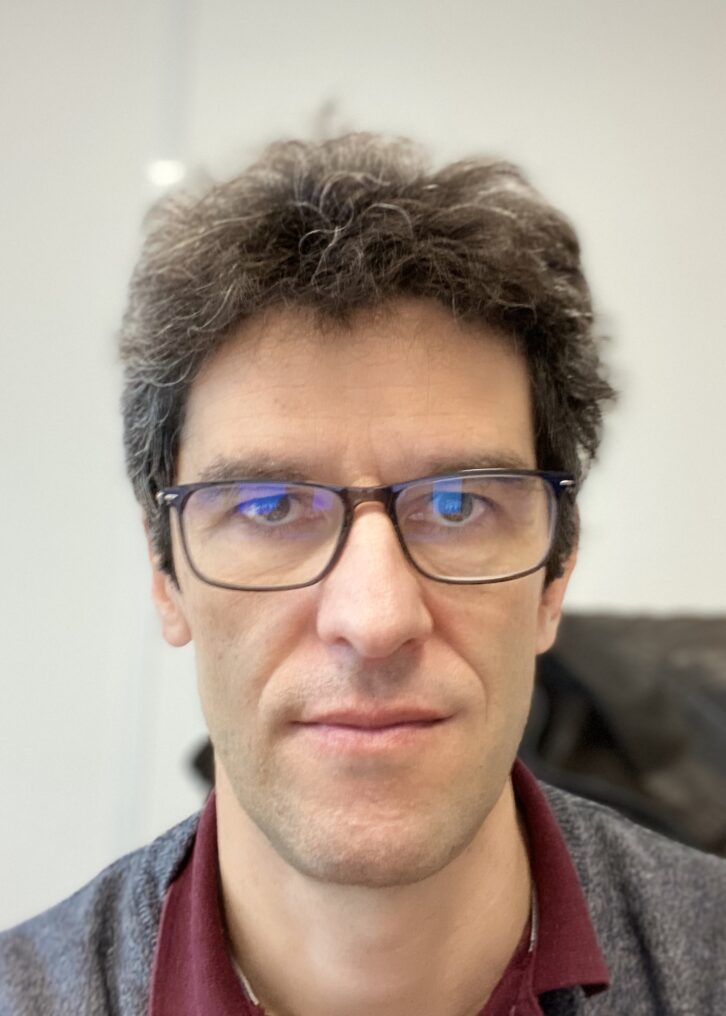Bruno Françon, director of strategic marketing at Backlight, talks to TVBEurope about the immersive nature of the media and TV industry and the importance of staying curious in an ever-evolving business environment.
Talk us through an average day in your role
Well, there is no real “average” day in Backlight as there will be a mix of my several roles and missions. At Backlight my role of “strategic marketing” comprises market intelligence, competition intelligence, and account-based marketing. I usually start my day with one or two hours of reviewing my daily alerts for market news and competition watch, identifying and analysing what from that amount of noise is really impacting Backlight and our markets, and convert it into snackable digest content for my internal customers. Then I will update our competition intelligence framework, as one of my key missions is maintaining our competition intelligence data so that it is always up-to-date and easily accessible by our sales teams, marketing department and management.

Another role is to understand who are our customers, how do they use our products and solutions, which business challenges and pains do they solve thanks to Backlight, which market segments are represented in our customer base and how much do we answer the specific needs of these segments, which of those segments are growing or reducing and why, and which ones could be better developed with a targeted marketing campaign. Before starting a marketing campaign, I will prepare a market study. It basically consists of investigating that specific market segment, understanding who the market stakeholders are, how they are currently managing video, what their current business challenges are and how much it’s critical to fix them, which Backlight product lines and solutions would solve their business pains, what messaging would better convey our business value in this particular market segment, which roles in the target organisations should be targeted, what marketing and communication channels are the most effective for touching our target prospects, and last but not least, estimate the business potential in terms volume and revenue.
I’m also closely working with product marketing to build dedicated sales and marketing product materials for the targeted market segment. Once a campaign is started, I would also contribute to building target customer lists, fine-tuning the messaging of email and outreach calls, and reviewing with our SDRs how much that messaging was accurate and perceived by contacted prospects. My role also includes contributing to and/or reviewing tender responses and customer case studies.
How did you get started in the media industry?
Quite lately, honestly! I spent most of my career in the telecom industry, in various companies and various roles encompassing software development, customer solution design, standardisation, pre-sales, product management and marketing. Even though I had the opportunity to touch video technologies on several occasions, I really entered the media industry when joining Wildmoka in early 2020, as market and competition director. It was the week Covid lockdown was rolled out across the country! Even though I felt a bit awkward to start a new position in a new industry in those unexpected conditions, looking back I can realise how lucky I’ve been to be part of this fundamental media industry revolution that has seen TV broadcasters, media groups, sports organisations and all other media-centric industries shift to new remote production workflows and embrace cloud-based technologies and digital distribution. And Wildmoka was an instrumental part of this transformation.
In 2022, Wildmoka was acquired by Backlight, along with four other media technology companies encompassing pre-production, post production, distribution and monetisation. Now within Backlight I was able to extend my market research activities towards the entertainment production and post production studios, as well as all other markets using media as part of their business: gaming industry, marketing agencies, education and learning industry, administrations, non-profit associations, corporations, houses of worship, fitness rooms, etc. I feel lucky to be in a position to address the big picture of media production and distribution, beyond the frontiers of the traditional media and entertainment market segment.
What training did you have before entering the industry?
I have an IT engineering diploma at ISEP in Paris, France. It helped me kick-start my career as a software designer and developer of what was, at the time of the early 1990s, the very pioneering of video conferencing. But what I’ve learned all along the years is that your current position, if you embrace it with passion, becomes the best training for your next job.
Why do you enjoy working in the industry?
So many reasons! As someone coming from other industries, I can feel the very special nature of media and entertainment. First of all, wherever we come from, we all have been immersed in TV and films since our childhood, and we have seen all forms of media evolving over the years, while new formats, new usages and new business models appear revolutionising our daily lives. All sorts of media require a mix of creation, artwork and technology at the service of culture, entertainment and information, and it’s incredible how much this industry gathers passionate people, with such a diversity of profiles, skills and professions. As a techie background marketer, I’m also stunned by how fast technology is turning the industry upside down, when in very few years remote production, cloud technologies, streaming and AI have transformed operational workflows, distribution channels and business models, creating a huge potential for business opportunities. Working in a company that encompasses the full span of media, broadcast, entertainment and creator economy, I feel fortunate to contribute to this transformation.
What piece of advice would you offer someone looking to explore a role similar to yours?
Be both analytic during your research phase, and synthetical in your reports.
Be empathetic, understand who you’re working for. There might be several types of audience waiting for your output. Each one has its own set of interests, in its own mental environment and vocabulary, and expects to find its own list of practical call-to-actions from your reports.
Be tenacious. Discovering data and transforming it into practical business intelligence requires time, hard, and sometimes not-so-fun, work.
Be curious, always, ever. It’s all about searching and understanding the what, why and how of an industry that is constantly evolving. Each day, accept that you’re the expert of yesterday and the newbie of tomorrow. And fix it.







